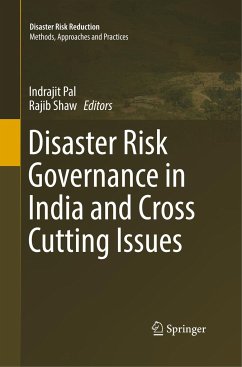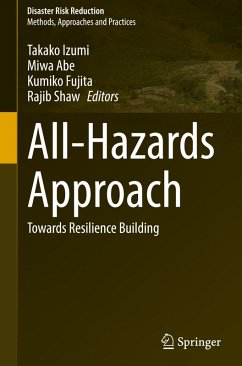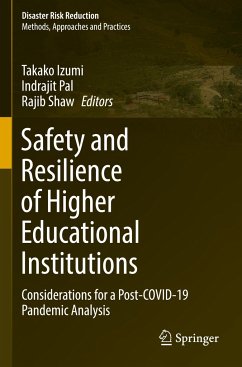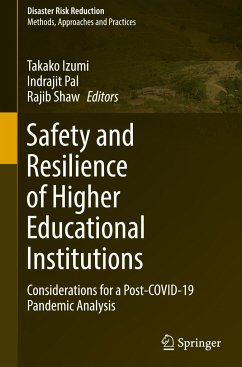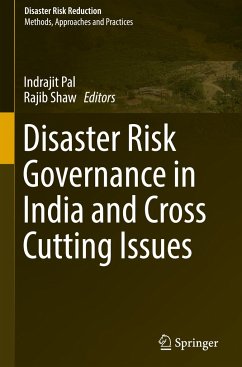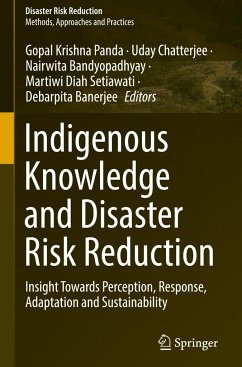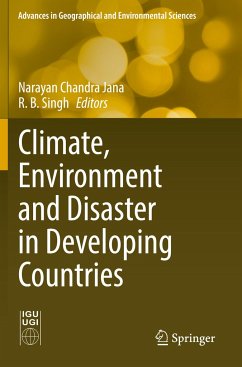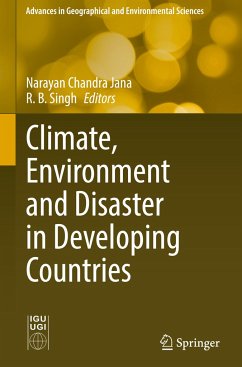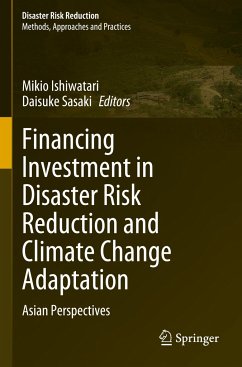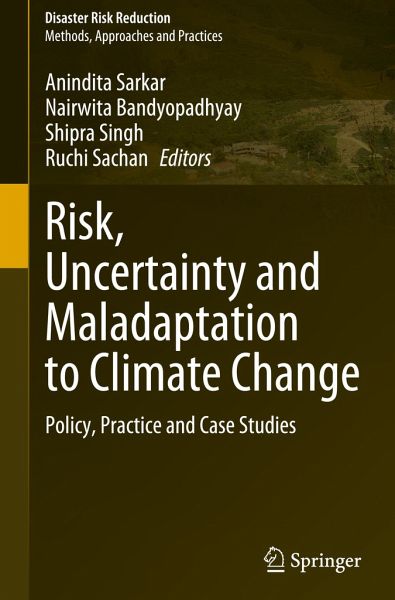
Risk, Uncertainty and Maladaptation to Climate Change
Policy, Practice and Case Studies
Herausgegeben: Sarkar, Anindita; Bandyopadhyay, Nairwita; Singh, Shipra; Sachan, Ruchi

PAYBACK Punkte
46 °P sammeln!
This book focuses on integrated disaster risk reduction arising out of climate change and shows how communities build resilience through adaptive and transformative strategies at the local and global levels. It integrates disaster risk, uncertainty, and maladaptation to climate change with evidence from empirical research and a systematic review of existing studies. The book also proposes two important contributions, which makes it distinctive. First, it gives a systematic review of the literature to capture the changing context and concept of risk, uncertainty, and maladaptation to climate ch...
This book focuses on integrated disaster risk reduction arising out of climate change and shows how communities build resilience through adaptive and transformative strategies at the local and global levels. It integrates disaster risk, uncertainty, and maladaptation to climate change with evidence from empirical research and a systematic review of existing studies. The book also proposes two important contributions, which makes it distinctive. First, it gives a systematic review of the literature to capture the changing context and concept of risk, uncertainty, and maladaptation to climate change. Second, it uses case studies from around the globe to demonstrate the ways that communities have fostered to build resilience to mitigate the impacts of climate change.
There is a growing recognition that decision-makers often rely on intuitive thinking processes rather than undertaking a systematic analysis of options in a deliberative fashion. This latter approach requiresaccepting a plurality of narratives, embracing multiple disciplinary perspectives, and above all, integrating the appropriate disciplines that can help in finding better solutions. Thus, the book adds value to the existing knowledge on climate change adaptation, perception, and policy initiatives to address disaster risk reduction. It considers all these interconnected issues of risk, uncertainty, and maladaptation through a series of conceptual review- and evidence-based case studies to create new knowledge to address climate change adaptation and a resilient future. The book is a useful contribution to resilience scientists, policymakers, and practitioners from diverse disciplines.
There is a growing recognition that decision-makers often rely on intuitive thinking processes rather than undertaking a systematic analysis of options in a deliberative fashion. This latter approach requiresaccepting a plurality of narratives, embracing multiple disciplinary perspectives, and above all, integrating the appropriate disciplines that can help in finding better solutions. Thus, the book adds value to the existing knowledge on climate change adaptation, perception, and policy initiatives to address disaster risk reduction. It considers all these interconnected issues of risk, uncertainty, and maladaptation through a series of conceptual review- and evidence-based case studies to create new knowledge to address climate change adaptation and a resilient future. The book is a useful contribution to resilience scientists, policymakers, and practitioners from diverse disciplines.



